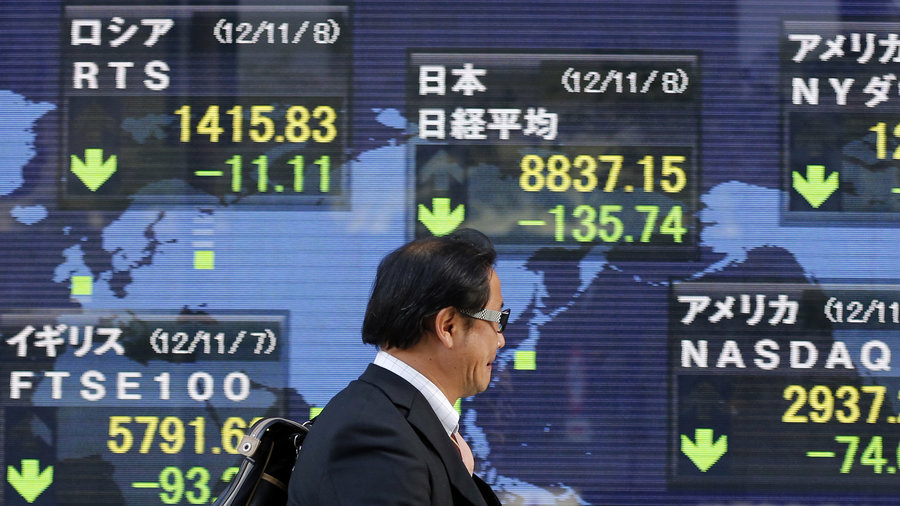Japan shrinks
May 16, 2018 | Expert Insights

Japan’s longest growth streak since 1989 has come to an end. Its economy has contracted by an annualised 0.6 per cent during the first quarter of 2018. This is the first time the economy has shrunk in two years, thus dealing a fresh blow to Prime Minister Shinzo Abe.
Background
Japan is the third largest economy in the world by nominal GDP after America and China. It has the fourth largest purchasing power parity. It is also considered the world’s second largest developed economy. After the devastation of the World War II, it achieved a steady and significant growth in the second half of 20th century. Much of its expansion was due to its highly successful automotive and consumer electronic industries.
In 2017, it was revealed that Japan has blown past industry and market expectations with its growth. According to the official numbers, its GDP expanded at an annualized rate of 4% in the April-to-June period. Industry had forecast a rise of just 2.5%. This was the sixth straight quarter of growth for the country. The robust growth in the economy was attributed to a rise in exports especially smart phones. The economy has also been boosted due to the investments made to the Tokyo 2020 Olympics.
Japan’s economy grew at an annualized pace of 1.4% in the third quarter of 2017. At the time, it was the longest run of growth the country had recorded since 2001. In February 2018, it was reported that Japan had recorded growth for the eight-consecutive quarter. This was the longest expansion the nation has enjoyed since the 1980s. However, at that time, it was highlighted that the growth had significantly slowed down and the nation had missed its growth targets.
Analysis
For the first time in two years, Japan’s economy has slid into reverse. This is largely due to sluggish consumption and a winter cold snap. Analysts had predicted that the economy would shrink by 0.2%. However, according to the latest data, the economy contracted at an annualised rate of 0.6%.
Analysts note that even though this is likely to be a blow for the Abe government, Japan is not in recession. "Globally, IT-related items have been in an adjustment phase, which weighed down Japan's exports and factory output," said SMBC Nikko Securities economist Yoshimasa Maruyama. "The economy is unlikely to continue to contract further. The global economy is performing well and a yen is trading beyond 110 yen against the dollar, so once exports start to grow again, the economy will return to a moderate growth path," he said.
The economy was also affected due to higher vegetable prices owing to bad weather, according to Takeshi Minami, chief economist at Norinchukin. He said, “There were one-off special factors in the January-March period, ranging from stock market sell-offs to higher vegetable prices due to bad weather.”
Japanese companies have been under fire in recent years and some have admitted to falsifying data. “It does certainly seem that export momentum has peaked out,” said Izumi Devalier, head of Japan economics at Merrill Lynch in Tokyo, speaking before the release of the GDP report. “We’re not expecting export contraction but you’re not really going to get as much push from export demand as you did in 2017.”
Some experts have also blamed the ongoing trade dispute between China and the US as having an effect on expenditure by Japanese conglomerates. "The biggest worry that we have is the capital expenditure slow down [in Japan] as corporations are backing off not only because of the strong yen, but particularly because of the possible protectionism that is emerging from the United States to the rest of the world," the University of Shizuoka's economics professor Seijiro Takeshita told the BBC.
Assessment
Our assessment is that even though this may not be the start of Japan’s recession, there are red flags that the government has to address. Currently, the rate of inflation is flat and employers remain reluctant in raising the base wages. In addition, the nation’s ageing and shrinking population will be a cause of concern as well. However, there are some positive indicators that should provide reprieve to Abe’s government. Japan’s labour market remains strong and the current unemployment rate is just 2.5 per cent.








Comments